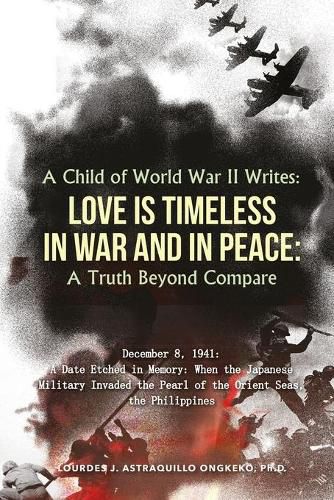Readings Newsletter
Become a Readings Member to make your shopping experience even easier.
Sign in or sign up for free!
You’re not far away from qualifying for FREE standard shipping within Australia
You’ve qualified for FREE standard shipping within Australia
The cart is loading…






This title is printed to order. This book may have been self-published. If so, we cannot guarantee the quality of the content. In the main most books will have gone through the editing process however some may not. We therefore suggest that you be aware of this before ordering this book. If in doubt check either the author or publisher’s details as we are unable to accept any returns unless they are faulty. Please contact us if you have any questions.
The book recounts World War II when the Japanese military occupied Baguio, Northern Luzon, the Philippines, on December 8, 1941. Carpet bombing joined the populace’s vocabulary; Filipinos were hoping they would be spared. Sentry posts were installed manned by fully-armed soldiers. Each civilian who passed by the sentries was halted to obey the act of bowing: not just a simple nod. Soldiers demonstrated bows; no one proceeded to leave unless the sentry illustrated moving on.
Sentries corporally punished those who failed to make the required low, low bow. My father was an early victim. Dressed in his usual coat/tie, he turned to bow which the sentry considered way below par. He beat Papa using a large rod; stripped him of his clothing, threw it to an already full trash bin. Onlookers were touched. As a child, I was shooed away. In the most pitiful state I had seen Papa, he whispered how I should enroll at the sole Japanese Language School. I did. As early enrollees, the teacher did not talk to us in English. We were first tested for admission and financial capabilities. Each time I passed through the sentries, I would greet them in their language; they’d shove me off, replying too in their language. Sentries felt free to confiscate jewelry from passers-by: watches, earrings, necklaces, any kind of bejeweled enhancement. My mother was used to wearing a breast watch on a collar which the sentry grabbed without warning. The collar was torn. Mama returned home. Tears framed her face. She sobbed as she recalled how the watch as it was her godmother when she received a diploma that attested to her qualification for a career in teaching.
$9.00 standard shipping within Australia
FREE standard shipping within Australia for orders over $100.00
Express & International shipping calculated at checkout
This title is printed to order. This book may have been self-published. If so, we cannot guarantee the quality of the content. In the main most books will have gone through the editing process however some may not. We therefore suggest that you be aware of this before ordering this book. If in doubt check either the author or publisher’s details as we are unable to accept any returns unless they are faulty. Please contact us if you have any questions.
The book recounts World War II when the Japanese military occupied Baguio, Northern Luzon, the Philippines, on December 8, 1941. Carpet bombing joined the populace’s vocabulary; Filipinos were hoping they would be spared. Sentry posts were installed manned by fully-armed soldiers. Each civilian who passed by the sentries was halted to obey the act of bowing: not just a simple nod. Soldiers demonstrated bows; no one proceeded to leave unless the sentry illustrated moving on.
Sentries corporally punished those who failed to make the required low, low bow. My father was an early victim. Dressed in his usual coat/tie, he turned to bow which the sentry considered way below par. He beat Papa using a large rod; stripped him of his clothing, threw it to an already full trash bin. Onlookers were touched. As a child, I was shooed away. In the most pitiful state I had seen Papa, he whispered how I should enroll at the sole Japanese Language School. I did. As early enrollees, the teacher did not talk to us in English. We were first tested for admission and financial capabilities. Each time I passed through the sentries, I would greet them in their language; they’d shove me off, replying too in their language. Sentries felt free to confiscate jewelry from passers-by: watches, earrings, necklaces, any kind of bejeweled enhancement. My mother was used to wearing a breast watch on a collar which the sentry grabbed without warning. The collar was torn. Mama returned home. Tears framed her face. She sobbed as she recalled how the watch as it was her godmother when she received a diploma that attested to her qualification for a career in teaching.